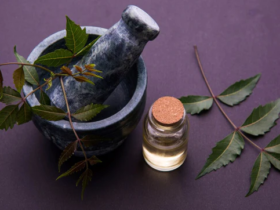Many natural remedies have been touted as miraculous solutions in the quest for healthier, stronger, and more vibrant hair. Among these, rosemary water is a particularly intriguing and potentially transformative option. This herb, long cherished in culinary and medicinal traditions, is now making waves in the world of hair care. But what exactly is rosemary water, and how can it benefit your hair? Let’s dive deep into the secrets of rosemary water for healthier hair.

The Power of Rosemary: A Historical Perspective
Rosemary, scientifically known as Rosmarinus officinalis, has been revered for centuries for its aromatic and medicinal properties. Native to the Mediterranean region, it was used by ancient civilizations such as the Greeks and Romans for a variety of purposes, ranging from culinary seasoning to medicinal applications. Rosemary was also believed to enhance memory and cognitive function, leading to its symbolic association with remembrance and fidelity.
Historical texts and traditional practices reveal that rosemary was used in hair care to promote growth, improve scalp health, and add shine to hair. Using rosemary-infused water or oil as a hair tonic has roots in various cultures, suggesting a long-standing belief in its beneficial properties.
Understanding Rosemary Water: Preparation and Properties
Rosemary water is essentially an infusion made by steeping rosemary leaves in water. This simple preparation allows the herb’s beneficial compounds to be extracted into the water, creating a potent solution that can be used in various ways for hair care.
Preparation of Rosemary Water
To prepare rosemary water at home, follow these steps:
- Ingredients: Fresh or dried rosemary leaves and distilled water.
- Method:
- Bring a pot of distilled water to a boil.
- Add a handful of rosemary leaves (fresh or dried) to the boiling water.
- Reduce the heat and let it simmer for 15-20 minutes.
- Remove the pot from heat and allow the mixture to cool.
- Strain the liquid to remove the leaves.
- Pour the rosemary-infused water into a spray bottle or container for easy application.
Key Properties of Rosemary Water
Rosemary water contains a variety of bioactive compounds, including:
- Rosmarinic Acid: An antioxidant with anti-inflammatory properties.
- Carnosic Acid: Known for its antioxidant activity and potential to protect against free radical damage.
- Essential Oils: Including camphor, cineole, and pinene, which contribute to its antimicrobial and anti-inflammatory effects.
These compounds collectively contribute to the potential hair benefits associated with rosemary water.
Benefits of Rosemary Water for Hair Health
Promoting Hair Growth
One of the most compelling reasons people turn to rosemary water is its potential to promote hair growth. Several studies and anecdotal reports suggest that rosemary can stimulate hair follicles, increasing hair growth and thickness. The exact mechanisms are not fully understood, but it is believed that rosemary’s antioxidant and anti-inflammatory properties help improve scalp health, thus creating a conducive environment for hair growth.

Improving Scalp Health
A healthy scalp is fundamental to healthy hair. Rosemary water can help improve scalp health in several ways:
- Antimicrobial Properties: Rosemary’s essential oils have antimicrobial properties that can help combat dandruff and other scalp infections, leading to a cleaner, healthier scalp.
- Anti-Inflammatory Effects: The anti-inflammatory properties of rosmarinic acid and carnosic acid can help reduce scalp irritation and inflammation, often contributing to hair loss and poor hair health.
- Increased Circulation: When applied to the scalp, Rosemary water is believed to improve blood circulation. Better circulation can ensure that hair follicles receive adequate nutrients and oxygen, promoting healthier hair growth.
Strengthening Hair Strands
Regular use of rosemary water can also strengthen hair strands. The nutrients and bioactive compounds in rosemary help fortify the hair, reducing breakage and split ends. This can result in hair that grows longer and appears fuller and more resilient.
Enhancing Hair Appearance
Besides its health benefits, rosemary water can also improve the overall appearance of hair. Many users report their hair looking shinier and softer after using rosemary water. This could be due to the herb’s conditioning effects, which can help smooth the hair cuticle and reduce frizz.
How to Incorporate Rosemary Water into Your Hair Care Routine
As a Hair Rinse
One of the simplest ways to use rosemary water is as a hair rinse. After shampooing and conditioning your hair, pour the rosemary water over your hair and scalp. Gently massage it into your scalp and leave it on for a few minutes before rinsing it with cool water. This can help seal the hair cuticle and add shine.
As a Scalp Treatment
Apply rosemary water directly to your scalp using a spray bottle for targeted scalp benefits. Mix your hair into sections and spray the rosemary water onto your scalp, massaging it with your fingertips. This method can be particularly effective for improving scalp health and promoting hair growth. You can leave it on for a few hours or overnight for deeper penetration before rinsing it out.
As a Leave-In Conditioner
You can also use rosemary water as a leave-in conditioner. Spray the rosemary water onto your hair after washing and towel-drying it. This can help detangle your hair, add moisture, and provide ongoing benefits throughout the day.
Potential Side Effects and Considerations
While rosemary water is generally safe for most people, it is important to be aware of potential side effects and considerations:
- Allergic Reactions: Some individuals may be allergic to rosemary. If you experience any redness, itching, or irritation, discontinue use and consult a dermatologist.
- Concentration: Ensure that the rosemary water is not too concentrated, as excessive amounts of essential oil can cause skin irritation. Diluting the rosemary water properly is crucial.
- Pregnancy and Breastfeeding: Pregnant and breastfeeding women should consult their healthcare provider before using rosemary water, as rosemary can have uterotonic effects.
The Science Behind Rosemary Water: What Research Says
While rosemary has a rich history of use in hair care, modern scientific research is still catching up. However, several studies provide promising insights into the benefits of rosemary water for hair health.
Hair Growth
A study published in the journal “Phytotherapy Research” compared the effectiveness of rosemary oil to minoxidil (a common hair growth treatment) in treating androgenetic alopecia (a type of hair loss). The results showed that rosemary oil was as effective as minoxidil in promoting hair growth, with fewer side effects like scalp itching.
Antimicrobial and Anti-Inflammatory Properties
Research has highlighted rosemary’s antimicrobial and anti-inflammatory properties, which are beneficial for scalp health. A study in the Journal of Medicinal Food found that rosemary extract had significant antimicrobial activity against several strains of bacteria and fungi. This supports using rosemary water in treating scalp conditions like dandruff and seborrheic dermatitis.
Antioxidant Effects
The antioxidant properties of rosemary are well-documented. Antioxidants protect hair follicles from oxidative stress, which can lead to hair damage and loss. A review in “Critical Reviews in Food Science and Nutrition” emphasized the potent antioxidant effects of rosmarinic acid and carnosic acid, which are abundant in rosemary.

Conclusion: Is Rosemary Water Worth the Hype?
Rosemary water is a natural, accessible, and potentially effective solution for improving hair health. From promoting hair growth to enhancing scalp health and strengthening hair strands, rosemary water’s benefits are supported by both historical use and emerging scientific evidence. While more research is needed to understand the mechanisms and optimize its use fully, current knowledge suggests that incorporating rosemary water into your hair care routine could be worthwhile.


















Got a Questions?
Find us on Socials or Contact us and we’ll get back to you as soon as possible.